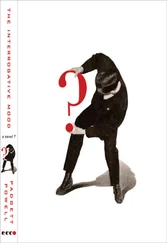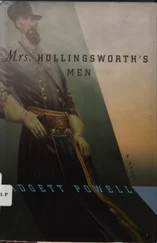This overflowing vitality appears in many modern achievements that may surprise the visitor. Improvement of the soil, industrial complexes, nuclear power centres, dams, motorways and skyscrapers, characterize the fantastic economic development which has taken place after World War II, giving Italy a new look and belying the legend of the macaroni-eating, guitar-playing Italian. A new way of life has been created in the country.
On Mario, one such modern Italian, these words had the calming, assuring effect of a psalm.
He was thinking specifically of the moving about modern Italy with perfect ease as he whipped his taxi through the customs gates at the port of Livorno to pick up his first fare of the day, a merchant seaman. Mario liked sailors. Unlike regular tourists, they were not finicky about what they wanted to see or do or where they wanted to go. They wanted food, women, to sleep, and they spoke in a direct fashion. With a sailor Mario was free to be himself, a man.
The sailor this morning was well-fed-looking, and Mario was not surprised to hear him ask for a “puta” right away. He turned to the sailor and said, with a conspiratorial wink, “I have large size.”
“Not a fat one,” the sailor said.
“No,” Mario said, “you do not seize my meaning. I have large size.” He held up his arm, flexed, his fist touching the ceiling of the cab.
“Non capisco Italiano,” the sailor said.
“You not must to know Italiano. In plain English, I have large size.” He winked again.
“Let me out,” the sailor said.
“But we are not to la puntana so presto —”
“You take her,” the sailor said, stepping from the moving taxi and running down the street.
Mario Moscalini was nimble enough, to be sure, to have caught the man, but it was just a matter of a language barrier, or something, and the skipped fare was not large, so he elected to just move on with traffic. Later he regretted this decision somewhat, because the day proved very dull, and it would have been enlivening to have stopped the sailor and wildly demanded his fare — and more, as reparation for the rudeness — and generally to have demonstrated to the fool what passion can mean. The man had been at sea too long for his own good.
It was not until he was on his way home that things picked up. He was tired, and it was funny the way it worked, but the best things seemed to happen to him when he was too tired to avail himself of golden opportunity. And if ever a golden opportunity bore down on him, it did as he clicked off his duty lights. He saw Cicciolina, pornostar and parliamentarian, by the side of the road, alone and needing a ride. She was supposed to be in Rome making legislation or movies. But she was here under a streetlight. Something was wrong, entirely out of place, so he got her into the cab without pressing her for an explanation. She would volunteer her troubles if she wanted to. Mario respected a person’s privacy if he respected anything in the world. And he respected l’onorevole Cicciolina if he respected anyone in the world. If she had not had the sense to pull her dress up over her tette at her press conference at Piazza Navona in Rome when she won her seat in parliament, he had been told that the very irreplaceable Bernini fountain there could have been much more seriously damaged than it was. People acted as if they had never seen tette before. It was ridiculous. Still, hers were a bit special, they looked good in movies, and it made him wonder if they were like movie stars themselves — maybe not so great-looking in real life. He thought she would be glad to show them to him, even if she was in some kind of trouble, so he turned down an oddly unfamiliar street — he knew Livorno backwards, he thought — where he could park if she agreed to a showing, and they were suddenly surrounded by the blue lights of polizia. How could she be in trouble with the law? She was the law.
An officer approached Mario’s window, pointing adamantly in the direction they had come. Then he threw his arms to heaven and shook his head. Mario saw now the one-way signs he had — it was incredible — been going against. And he a professional driver. That was why the officer was so wild in his gesticulations probably. Mario had let down the fraternity of professional men on the road. He got out to face the officer.
When the officer again pointed and raised his arms in total surrender at a move so un nimble as Mario’s, Mario fell to his knees and sculpted giant breasts in the air before his chest as he had seen Greek sailors do many times when they danced in the port bars.
He was overcome by a passion that had not seized him so in the car — he suddenly knew why men had broken a foot off a river god when they saw l’onorevole Cicciolina’s tette. “Her tette were credimi, eccellente — grande, pesante —”
“Whose?” the officer said.
“L’onorevole Cicciolina’s.”
“When?”
“Now.”
“Now?”
“She was in the taxi with me — it’s why I took the bad turn—”
“Where is she now?”
“Disappeared, apparently. You did not see her?”
“No.”
“She’s fast. It’s almost incredible, but I think she’s in trouble with the law. That’s why she vamooshed. Is she wanted by the law?”
“You were in a fantasy,” the officer said.
“I doubt it.” Mario met the officer eye to eye. He held his ground. “I doubt that extremely.”
The officer pursed his lips. “Good for you. No ticket today. Buon viaggio. I’d like to meet her, too. Here’s my number.”
“Ciao,” Mario said. He doubted that l’onorevole Cicciolina would consort with polizia but he held his tongue. Let the officer dream.
He sped homeward, thinking that if the officer had not been one policeman but a whole band of carabinieri with Uzis, and they had opened fire, he and Cicciolina would have looked a lot like Warren Beatty and Faye Dunaway in Bonnie and Clyde, except his Fiat was a little smaller than Clyde’s coupe, and Cicciolina’s tette were a lot larger than Bonnie Parker’s. He threw the officer’s number out the window, an act he would regret when he got home.
At his house the first thing he saw was a man looking into his windows. Fearing he might be an assassin, perhaps some new form of competition among taxi drivers, he circled the block until the man disappeared, discovering in his revolutions that his Fiat, though now getting on in miles, still got good rubber going into both second and third. When the man had gone, he realized that a taxi-driver assassin would not linger in the absence of a taxi, so he was probably fantasizing a bit, but still, you could not rule anything out these days. You have CIA, the Israelis are back-to-the-wall, look at Libya, and the French can be so snotty. Mario had had nightmares since hearing in childhood about tiny Frenchmen with wires who had been deadly on Germans who were caught patrolling lines — from behind, total surprise, wire through neck. There was an air of lunacy about it, but Mario thought it just could have been a lost Frenchman looking to kill him for some fantastic reason, kill him with a wire, if it was still true that they were good with the wire.
Getting out of his car, Mario stepped on a wire. This nearly gave him an infarto. But he saw, before he stopped breathing altogether, that it was only his radio antenna that he had yanked two mornings ago from the red hands of the neighbor’s six-year-old. He had given the child a very stern talking-to about antenna stealing leading straight to bank robbing and jail, gesticulating with a razor motion at his throat. The child, still holding the snapped-off antenna, did not seem to understand, so Mario choked himself until blue to demonstrate the effects of hanging as he had seen them in Westerns. At this the child dropped the antenna and ran off laughing. Mario left it there. It was not sightly to reconnect a ripped-out antenna, and less sightly to stick in its place a coat hanger. Besides, his radio did not work. It had blown out one night as he passed a nuclear power station. He had a vaguely dishonest feeling after scolding the child, because the radio was useless and because he had himself wanted to be a bank robber before circumstances led him into taxi driving.
Читать дальше












